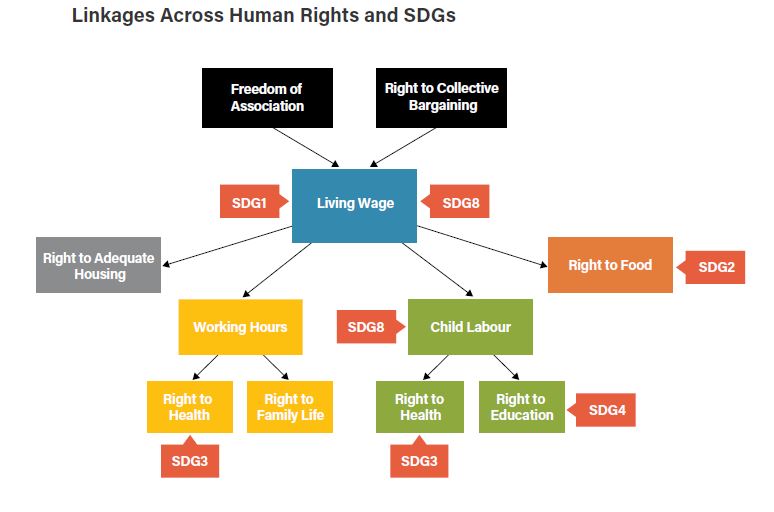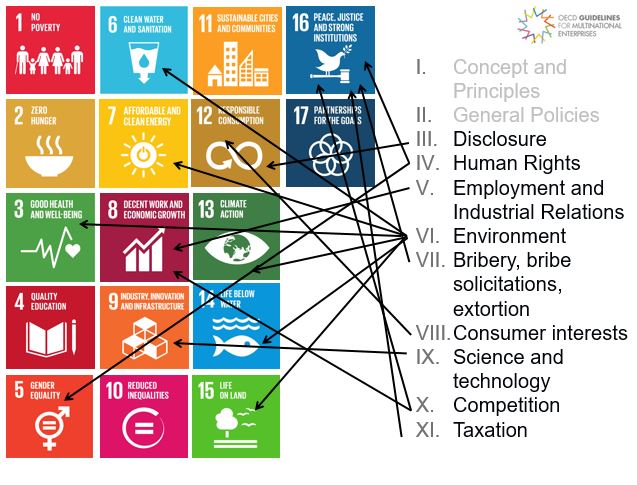‘The work on responsible business conduct has the potential to become the most powerful instrument for sustainable development,’ says Ola Mestad, Chair of the OECD National Contact Point in Norway. This can be achieved if the biggest businesses in particular fulfil their responsibility and exercise their leverage throughout their global value chains.
UNGP and the OECD Guidelines: important tools for achieving the SDGs
If this responsibility is fulfilled in accordance with the intentions of the UN Guiding Principles on Business and Human Rights (UNGP) and the OECD Guidelines for Multinational Enterprises, more people can be lifted out of poverty than under any other individual initiative under the UN 2030 Agenda. This has recently been emphasised in particular by John Ruggie, ‘the architect’ behind the UN Guiding Principles.
The UN recently adopted 17 Sustainable Development Goals (SDG), a common global framework to end poverty, eliminate inequality and combat climate change by 2030. Realising the Sustainable Development Goals requires greater involvement by the business sector and new forms of partnerships between public and private enterprises.
Focus has been given to how work on the Sustainable Development Goals creates opportunities for the private sector, but, until now, little attention has been devoted to how the private sector plays a key role in driving the process towards achieving the goals.
It is a well-known but very unfortunate tendency that good initiatives by the global society are not seen in conjunction with each other, according to Ola Mestad, Chair of the Norwegian NCP. ‘But now, while work on the Sustainable Development Goals is in the starting phase, there is still time to integrate this with the important work on responsible business conduct.’
How can responsible business conduct contribute to sustainable development for the population at large?
By making requirements of business associates for decent working conditions and a living wage, businesses can generate far greater positive effects on sustainable development than by just working on individual projects. One out of six employees in the world are part of a multinational value chain. If you include the families of these workers, you quickly reach two billion people.
A responsible business model will help to ensure that people are paid a living wage, that men and women are treated with equal dignity and provided equal opportunity, that their right to organise is respected, their health and safety attended to in the work place and their communities protected. In sum, the private sector will contribute to a marked improvement of these people’s lives through a higher and more evenly distributed standard of living. This contributes to development in the affected countries and can also counteract the widespread corruption that often characterises developing countries.
In relation to the Sustainable Development Goals, this entails a direct positive effect on SDG 8 (decent work and economic growth), SDG 1 (poverty), 2 (hunger), 3 (health), 4 (education), 5 (gender equality), 6 (water and sanitation), 10 (reduced inequalities), 11 (sustainable communities).
Expectation of responsible business conduct and guidance in this field:
The Norwegian Government expects companies to follow the OECD guidelines, where applicable, when developing strategies for responsible business conduct, and exercise due diligence and assess the human rights-related risks in the context of their operations. Read more about the Government’s expectations in the Action Plan on Business and Human Rights.
Read Ruggie’s article: ‘Making Globalization Work for all: Achieving the Sustainable Development Goals Through Business Respect for Human Rights’.
Please contact us for more information.


